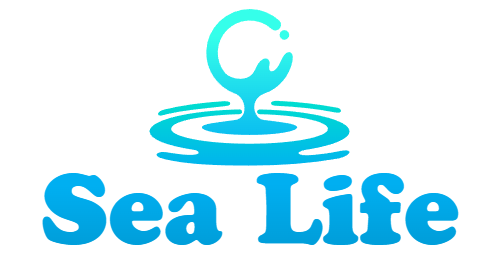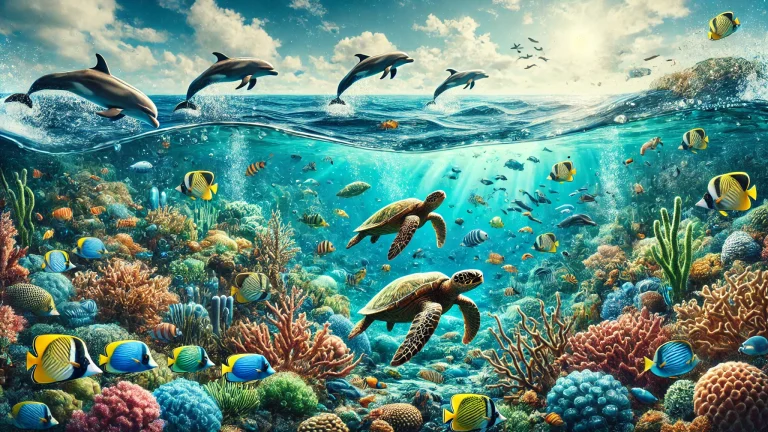The health of our oceans is paramount to the survival of countless marine species and the overall balance of our global ecosystem. Ocean pollution poses a significant threat to marine life, disrupting habitats, and leading to the decline of biodiversity. At Sea Life, our vision is to foster a healthy marine ecosystem where all wildlife can thrive. This article explores effective strategies to combat ocean pollution and promote the well-being of marine ecosystems.
1. Reduce Plastic Production and Waste
Minimize Single-Use Plastics
Single-use plastics are one of the largest contributors to ocean pollution. These items, such as shopping bags, straws, and water bottles, often end up in the ocean, harming marine life and ecosystems. Reducing the use of single-use plastics can have a significant impact on ocean health.
- Opt for Reusable Alternatives: Encourage the use of reusable shopping bags, water bottles, and utensils. By making these simple switches, individuals can reduce their plastic footprint.
- Support Legislation: Advocate for laws that ban or restrict single-use plastic items. Policies that promote the use of biodegradable materials can drive significant environmental benefits.
Promote Recycling
Recycling is essential in managing plastic waste and preventing it from reaching the ocean. Effective recycling practices can reduce the volume of waste that pollutes marine environments.
- Educate the Public: Raise awareness about proper recycling practices. Many people are unaware of how to recycle correctly, leading to contamination of recyclable materials.
- Improve Infrastructure: Support initiatives that enhance recycling infrastructure. Investment in advanced sorting and processing facilities can increase recycling rates and reduce plastic pollution.
2. Improve Wastewater Management
Upgrade Infrastructure
Untreated sewage and industrial waste are major sources of ocean pollution. Modernizing wastewater treatment facilities can prevent harmful substances from entering waterways.
- Invest in Treatment Facilities: Governments and private sectors should invest in upgrading wastewater treatment plants to handle increasing volumes of waste effectively.
- Implement Advanced Technologies: Incorporate technologies that remove a broader range of pollutants, ensuring that discharged water is cleaner and safer for marine environments.
Stormwater Management
Stormwater runoff often carries pollutants from urban areas into rivers and oceans. Effective stormwater management can mitigate this issue.
- Install Filtration Systems: Use filtration systems to capture pollutants before they reach natural water bodies. Green infrastructure, such as rain gardens and permeable pavements, can absorb rainwater and reduce runoff.
- Create Green Spaces: Promote the development of green spaces that naturally filter rainwater, reducing the volume of polluted runoff entering waterways.
3. Adopt Eco-Friendly Products
Choose Sustainable Materials
Using biodegradable and eco-friendly products can significantly reduce plastic pollution.
- Support Sustainable Companies: Purchase products from companies committed to sustainable practices. This shift in consumer behavior can influence market trends and reduce the reliance on harmful materials.
- Promote Biodegradable Options: Encourage the use of products made from biodegradable materials, which break down more easily and do not persist in the environment.

4. Manage Chemical Pollution
Regulate Agricultural Runoff
Agricultural runoff, containing fertilizers and pesticides, is a significant source of chemical pollution in oceans.
- Implement Regulations: Enforce stricter regulations on the use of fertilizers and pesticides to prevent runoff into waterways.
- Promote Organic Farming: Encourage farmers to adopt organic farming practices that reduce the use of harmful chemicals, benefiting both terrestrial and marine environments.
5. Prevent and Respond to Oil Spills
Enhance Safety Standards
Oil spills have devastating effects on marine life and ecosystems. Preventing spills and responding effectively when they occur is crucial.
- Stricter Safety Regulations: Enforce stringent safety regulations for oil drilling and transportation to minimize the risk of spills.
- Invest in Response Technologies: Develop and deploy advanced technologies for quick and effective spill response, minimizing the environmental impact.
6. Engage in Clean-Up Efforts
Participate in Clean-Ups
Community involvement in clean-up activities can significantly reduce plastic waste in natural habitats.
- Organize Local Events: Host or join beach and river clean-up events to remove plastic waste and other pollutants from the environment.
- Raise Awareness: Use these events to educate participants and the broader community about the importance of reducing ocean pollution.
Support Organizations
Many organizations are dedicated to ocean conservation and pollution reduction.
- Volunteer and Donate: Contribute time or resources to organizations focused on cleaning up oceans and protecting marine life, such as The Ocean Cleanup or Surfers Against Sewage.
7. Educate and Advocate
Raise Awareness
Education is key to changing behaviors and attitudes towards ocean conservation.
- Use Social Media: Leverage social media platforms to spread information about the impacts of ocean pollution and ways to mitigate it.
- Community Events: Organize or participate in community events that focus on ocean conservation, helping to inform and engage the public.
Support Policy Changes
Advocating for stronger environmental policies can lead to significant improvements in ocean health.
- Engage with Representatives: Contact local and national representatives to support legislation that protects marine environments.
- Promote Sustainable Practices: Advocate for policies that encourage sustainable practices in industries that impact the ocean, such as fishing, tourism, and shipping.
Conclusion
By implementing these strategies, individuals and communities can significantly reduce ocean pollution and protect marine biodiversity. Collective action, informed choices, and strong advocacy are essential to creating a sustainable future for our oceans and the life they support. At Sea Life, we are committed to fostering partnerships and promoting practices that safeguard marine ecosystems. Together, we can ensure a healthier, more vibrant ocean for future generations.For more information and to get involved in ocean conservation efforts, visit Sea Life. Let’s work together to protect our oceans and the incredible life they sustain.

